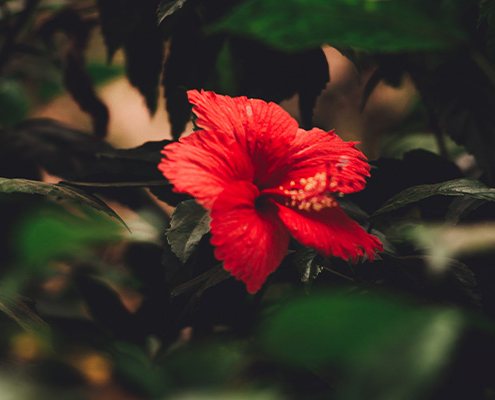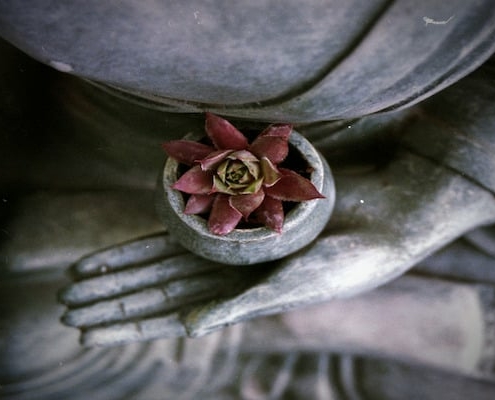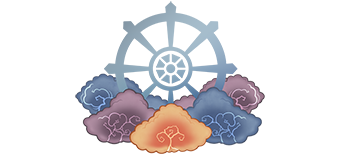
Article: Tonglen – An Integrated Energy Medicine Point of View
Applied Buddhist Psychology, Article, Buddhism, Compassion, Empowered Living, Geshe Pema Dorjee, Inner Wisdom, Integrated Energy Medicine, Isa GucciardiBy Joanna Foote Adler, PsyD, CHT
Much has been written on the practice of Tonglen, the Tibetan Buddhist meditation practice of giving and taking. Tonglen is a powerful and important practice in many of the schools of Buddhism. I would like to offer some thoughts to add to this literature from the perspective of Integrated Energy Medicine as it is taught at the Foundation of the Sacred Stream, which will hopefully help to focus this practice for western practitioners in a skillful way.
Article: The Unseen Teacher
Applied Buddhist Psychology, Applied Shamanism, Article, Buddhism, Depth Hypnosis, Empowered Living, Inner Wisdom, Isa GucciardiBy Isa Gucciardi, Ph.D.
Teaching and learning have never been separate for me. As a learner, I have always been keenly aware of the fact that I am being taught from within as I try to master a skill. I can feel the internal teaching change me in a different way than the external learning changes me. I remember being taught how to sight read as I was learning to play the piano. My piano teacher taught me the concept of matching the notes on the page with the notes on the keyboard, but when I read the notes on the page, I could feel an unseen teacher aligning me with the music. I was being taught how to play the piano, but I was also learning a new alignment to the world.
Article: Book Review: A Fearless Heart: How the Courage to Be Compassionate Can Transform Our Lives
Applied Buddhist Psychology, Article, Buddhism, Compassion, Empowered Living, Thupten JinpaBy Barry Lipscomb
Reading A Fearless Heart was a very powerful, transformative, and healing experience for me personally. This was heightened by reading the book the same week I began the Sacred Stream's Applied Buddhist Psychology 1: Entering the Stream class, and started practicing Shamata meditation. It seems my heart is breaking open and expanding in new directions, as if compassion and loving-kindness is the last frontier.
Blog: Personal Responsibility: An Interview with Isa Gucciardi, Ph.D.
Applied Buddhist Psychology, Blog, Empowered Living, Inner Wisdom, Isa Gucciardi, Personal Responsibility, RelationshipsQuestion: How would you define personal responsibility?
Isa: Personal responsibility is a process of becoming more self-aware, understanding your motivations, your intentions, and the effect your actions and thoughts have on you and those around you. It involves a willingness to contemplate the consequences of your emotional responses, and the ability to recognize when those expressions are harmful and when they are beneficial.

Buddhist Meditation in Depth Hypnosis
Applied Buddhist Psychology, Blog, Buddhism, Depth Hypnosis, Empowered Living, Inner Wisdom, Isa Gucciardi, Mind TrainingBy Isa Gucciardi, Ph.D.
Depth Hypnosis is a therapeutic process that blends elements of Shamanism, Buddhism, transpersonal psychology, hypnotherapy, and energy medicine. Buddhism is one of the main engines of Depth Hypnosis, and meditation is one of many tools we use to help clients alter their state of consciousness. Meditation enables clients to shift their focus from their "thinking minds" to their inner experience.
Blog: Buddhist Perspectives on Grief and Loss
Applied Buddhist Psychology, Blog, Buddhism, Death, Empowered Living, Grief and Loss, Robert ThurmanBy Isa Gucciardi, Ph.D.
In Robert Thurman’s prelude to his translation of Bardo Thodol, commonly translated as The Tibetan Book of the Dead, he takes to task scientific materialists’ perspective that death is a terminal state, a state of nothingness where life is destroyed. He points out that these materialists “have never observed even one material thing become nothing. Why should the energy reality of a state of awareness [life] ……be the exception to the law of physics that energy is conserved and only transformed?” I have always appreciated Dr. Thurman’s willingness to take on monolithic prejudices, in the name of science, in response to spiritual questions. I have always felt the wholesale rejection of notions such as the possibility of life after death and the existence of spirit was highly unscientific. In order to step into the universe of life beyond death from the Buddhist perspective, we have to allow ourselves to be disabused of the ways in which we may have unwittingly digested the viewpoints of scientific materialism on these subjects simply because they dominate in our education system.
Special Announcement: Sacred Stream Offering Series of Workshops in Iowa’s Quad Cities Region This May
Applied Buddhist Psychology, Depth Hypnosis, Empowered Living, Integrated Energy Medicine, Isa Gucciardi, NewsStarting May 9, Sacred Stream will be offering some of their most popular workshops in Iowa’s Quad Cities region. Courses available include: Coming to Peace: Methods of Conflict Resolution (Prairiewoods Franciscan Spirituality Center, Hiawatha), Expanding Consciousness: The Four Immeasurables Resolution (Prairiewoods Franciscan Spirituality Center, Hiawatha), Embracing the Sacred Feminine (Our Lady of the Prairie Retreat, Wheatland), Consciousness and Integrated Energy Medicine (Bettendorf Public Library, Bettendorf), and The Path of Service and the Nature of Suffering (Our Lady of the Prairie Retreat, Wheatland).

Blog: Ask Isa: Overcoming Guilt as a Reaction to the State of the World
Applied Buddhist Psychology, Ask Isa, Blog, Buddhism, Empowered LivingBy Isa Gucciardi, Ph.D.
Question: I feel very guilty about the state of the world and my relatively good life. I have so much and others are in such pain and have so little. My response is to over-give in an effort to help, but it never seems to be enough and I just end up feeling worse about myself and about the state of the world. How do you live with the knowledge that so much is wrong in the world and then not do something about it?
Article: Relationship as a Vehicle for Consciousness
Applied Buddhist Psychology, Article, Depth Hypnosis, Empowered Living, Energetic Patterns, Karma, RelationshipsBy Isa Gucciardi, Ph.D.
Relationship forms the core of our experience as humans. We define ourselves and are defined by the nature of our relating. The Buddhist concept of interdependence affirms that nothing exists independently. Everything exists interdependently. In relationship, we do not and cannot exist independently of one another. It is through relationship that we come to know ourselves. It is through relating that we hold up a mirror to others for them to come to know themselves. Others do the same for us, providing us with information about ourselves that we could not see without the lens of relating. In this way, relationship provides us with a path of revelation. As we learn more about ourselves, our experience takes on richer meaning.
